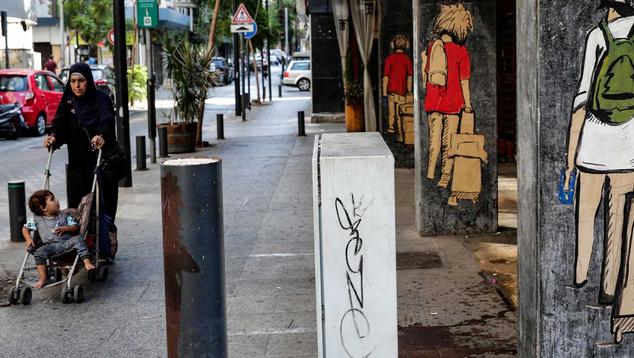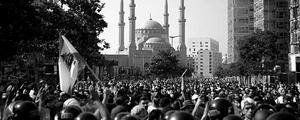Story Highlights
- More than six in 10 (63%) say they want to leave Lebanon permanently
- 85% say they are finding it difficult or very difficult to get by
- Negative emotions, such as anger and sadness, have soared
WASHINGTON, D.C. -- Political instability and government ineffectiveness are practically mainstays in Lebanon, but the country's latest crisis has been harder on people than any of its struggles since the civil war.
Quality of life has deteriorated so much in Lebanon that most people -- a record-high 63% in 2021 -- say they would leave the country permanently if they could. Canada and Germany are the most desired destinations for this group: 28% would like to go to Canada, and 19% would like to move to Germany.
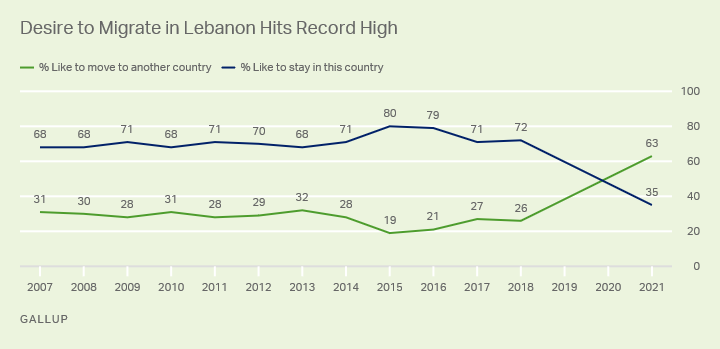
Line graph. A record-high 63% in Lebanon say in 2021 that they would like to move to another country permanently if they could. From 2007 to 2018, this figure ranged from 19% to 32%.
Lebanon's economic meltdown has hammered the country's middle class, as well as many of its best educated, which helps explain why so many are ready to head for the exits.
Brain drain and emigration have been constant features of Lebanese life since at least the country's 1975-1990 civil war, as Lebanon's diaspora is now estimated to be larger than its domestic population. However, the percentage of people in Lebanon who have reported a desire to move to another country permanently stuck to a steady range between 19% and 32% in all 12 years that Gallup has asked this question since 2007, until now.
The desire to leave Lebanon cuts across major Lebanese communities. Notably, more Muslims than Christians in Lebanon tell Gallup they would like to leave the country (67% vs. 57%). The exodus of Middle Eastern Christians from the historical cradle of Christianity has accelerated in recent decades because of conflict and instability in countries that held significant Christian populations in the not-distant past.
Nearly Nine in 10 in Lebanon Are Finding It Difficult to Get By
Declining economic conditions in Lebanon come at a time when the country continues to be hit by extended blackouts and a fuel crisis that has put both the cost of fuel and food out of reach for many families. In 2021, 85% of people in Lebanon say they are finding it "difficult" or "very difficult" to get by on their income, including 62% who say it is "very difficult." The latter figure has nearly doubled since 2019, when 32% said the same.
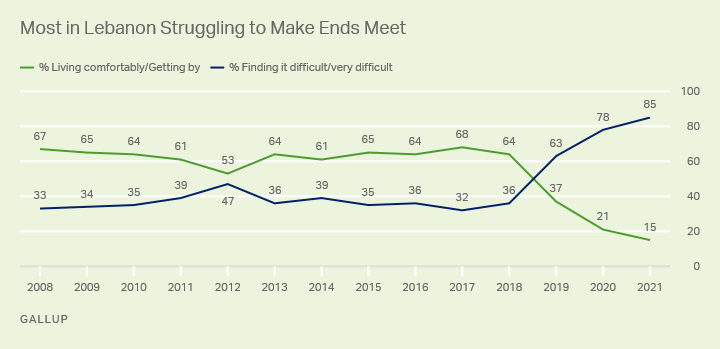
Line graph. In 2021, 85% of people in Lebanon say they are finding it "difficult" or "very difficult" to get by on their income, including 62% who say it is "very difficult." This last figure has nearly doubled since 2019, when 32% said the same.
More Than Half Struggle to Afford Food
Only three years ago, before Lebanon's recent crisis, just 14% of adults in Lebanon said there were times in the past 12 months when they lacked money for food, a figure that shot up to 45% in 2020 after the Beirut port explosion and COVID-related economic shocks. Today, slightly more than half of adults (53%) say they have lacked money for food, a nearly fourfold increase since 2018. During the same period, the percentage who said they can't afford shelter has increased from 6% to 31%.
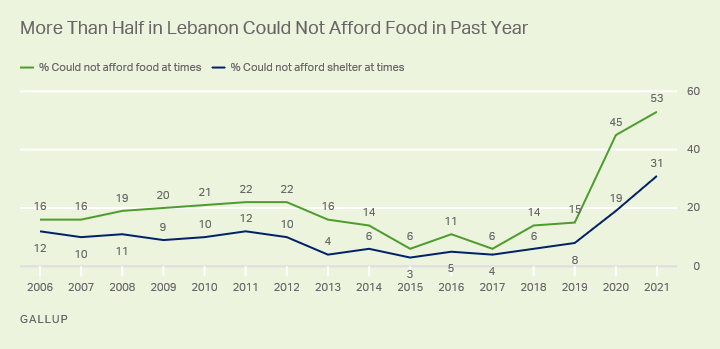
Line graph. Today, slightly more than half of adults (53%) say they have lacked money for food, a nearly fourfold increase since 2018. During the same period, the percentage who said they can't afford shelter has increased from 6% to 31%.
Negative Emotions Surge Among People in Lebanon
As life in Lebanon has become harder, 2021 has set new records for negative emotions. Nearly three in four people (74%) now say they experienced stress "a lot of the day" during the previous day. At least half of people in Lebanon also say they experienced a lot of sadness (56%) and anger (49%) as well. All three are new highs in Gallup's 16-year trend in the country.
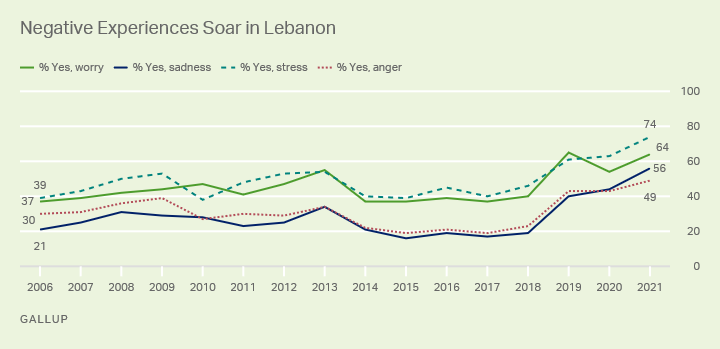
Line graph. Nearly three in four people in Lebanon (74%) now say they experienced stress "a lot of the day" during the previous day. At least half of people in Lebanon also say they experienced a lot of sadness (56%) and anger (49%) as well, both new highs in Gallup's 16-year trend in the country.
Bottom Line
Recent World Poll data in Lebanon represent one of the deepest and most sudden declines in any country's economic and humanitarian fortunes since data collection began in 2005. Worse, an end does not appear in sight after a United Nations envoy to Lebanon remarked that Lebanese officials are not acting with urgency and are living in a "fantasy land." Further spelling out the failure of the country's leadership, the World Bank has labeled the country's malaise a "deliberate depression" and one of the worst financial crises anywhere in the world since the 1850s.
Lebanon is still looking for its "bottom," and the country's most vulnerable remain at particularly high risk. One recent UNICEF report from October showed further significant decline in past months, with 53% of families having had at least one child skip a meal, compared with 37% in April. UNICEF estimates that 12% of children are now being sent to work in an all-out effort to acquire basic needs.
But even if Lebanon does hit bottom, it will be difficult for it to resurface in the current environment. Political parties are as far apart as ever, and government looks unlikely to take action to adequately address the crisis anytime soon.
To stay up to date with the latest Gallup News insights and updates, follow us on Twitter.
For complete methodology and specific survey dates, please review Gallup's Country Data Set details.
Learn more about how the Gallup World Poll works.
